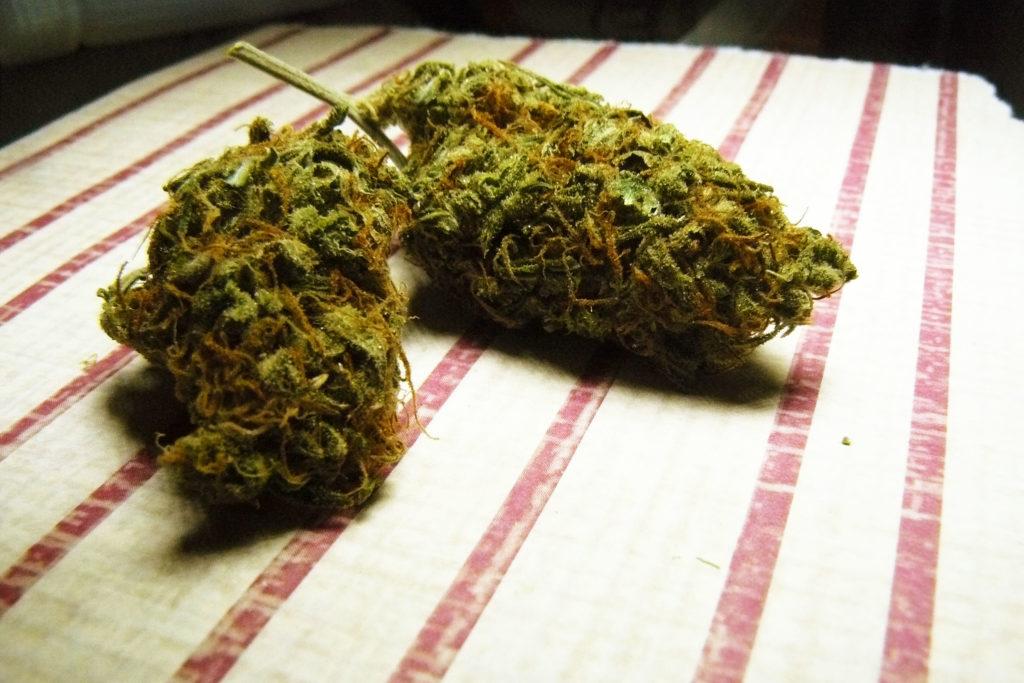By Ryan Grewal, city editor
Northeastern University does not plan to change its Code of Student Conduct to reflect marijuana’s legal status in Massachusetts, according to a university spokesperson. Local marijuana legalization advocates have criticized the decision, as well as recent delays on Beacon Hill over the implementation of legalization.
The Massachusetts legalization referendum, Question 4, passed on Nov. 8, 2016, with nearly 54 percent of the vote. The corresponding Regulation and Taxation of Marijuana Act took effect on Dec. 15, 2016, and immediately made limited possession legal for people at least 21 years old and set up a process for recreational sales to begin on Jan. 1, 2018.
Possession or consumption of marijuana by Northeastern students is a level IV offense, which carries a penalty up to deferred suspension, according to the Code of Student Conduct. Northeastern has decided to maintain this policy because of concerns over federal funding, university spokesperson Matthew McDonald said.
“The use of marijuana is a violation of the university’s Code of Student Conduct and policy on a drug-free workplace,” McDonald said in an e-mail to The News. “Marijuana is still illegal under federal law, and universities that receive federal funding, as Northeastern does, must comply with those federal statutes.”
Simmons College, Tufts University, Amherst College, Suffolk University, Boston University and the University of Massachusetts system also plan to keep their prohibitions on student use of marijuana in place, according to The Boston Globe.
However, some schools in other states have changed their marijuana policies to reflect the laws of their states.
The University of Connecticut standardized the way campus safety officials and police respond to underage drinking and cannabis possession following a 2011 law decriminalizing small amounts of the drug, according to The Atlantic.
Northeastern does not prohibit of-age students from possessing or consuming alcohol, and even allows the consumption of alcohol in certain residence halls, according to the Code of Student Conduct. This disparity has led some Massachusetts marijuana advocates like Jim Borghesani, the communications director for the Yes on 4 campaign, to call for parity in alcohol and marijuana policy.
“My opinion is that [university policies] should be consistent,” Borghesani said. “Since marijuana is now a substance that is regulated like alcohol, it should be reflected in a consistent manner. It should not be a double standard as long as it’s someone is over 21.”
While university administrators tackle with marijuana issues on campus, Massachusetts politicians have been putting in place legislative roadblocks on the path to legal marijuana in the Commonwealth. On March 20 – more than three months after the referendum decision went into effect – the legislature’s Joint Committee on Marijuana Policy held its first hearing where they discussed increasing the excise tax, among other issues.
“We think that the rate in the initiative is sufficient to fund the regulation of the new industry,” Borghesani said. “The legislature should wait until they get recommendations from the [Cannabis Control Commission] CCC.”
The hearing comes three months after the State Legislature delayed steps toward legalization. On Dec. 27, 2016, the legislature pushed back assembling the CCC from March to September 2017 and delaying the beginning of legal sales from January to July 2018.
Kamani Jefferson, co-founder of the Cannabis Cultural Association, expressed concerns over the delays creating obstacles to implementing legalization.
“We knew [the legislature] were going to try and screw with the law,” Jefferson said. “It stinks that they pushed it back, because it promotes the black market in the Commonwealth. It’s going to be hard to get people to come from the black market to the legal market.”









